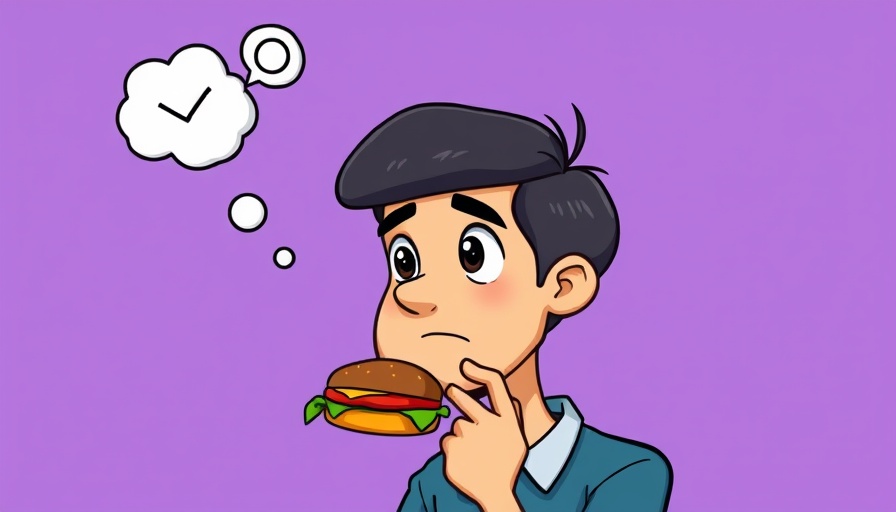
Beyond Labels: The Emotional Toll of Food Morality
The journey with food is often laden with complex emotions, particularly for digital nomads seeking balance in their ever-evolving lifestyles. As people traverse different cultures, they encounter a myriad of foods that can trigger feelings of guilt and shame based on societal standards of health. The notion of 'good' and 'bad' foods often becomes intertwined with our identities, leading to unhealthy relationships with what we consume.
Identifying the Roots of Food-related Anxiety
For many, the consequences of diet-related stress stem from early childhood experiences that shape our perceptions. This can manifest as intense feelings of guilt after indulging in local delicacies or preoccupation with calorie counts while adapting to new environments. When traveling, the temptation of trying out exotic foods may be met with an internal struggle: is it 'good' to enjoy the local cuisine, or does it make me fall short of my health goals? Recognizing these thought patterns can help demystify our relationships with food.
Cultural Influences and the Quest for Control
Cultural pressures greatly influence how we perceive food choices. For example, strict dietary rules from society, families, or wellness trends can exacerbate feelings of inadequacy. As David Levingston notes, attempts to adhere rigidly to a healthy eating philosophy can often lead to psychological battles. An essential part of wellness while traveling is embracing food freedom without the constraints of societal judgment.
The Dangers of Restriction: Breaking Free from Food Morality
Travelers often find themselves battling restrictive food norms. In trying to adhere to the 'clean eating' trend, many end up feeling isolated during meals. In fact, excessively limiting oneself can lead to unhealthy behaviors, like binge eating. The cycle begins when feelings of guilt after enjoying a meal trigger compensatory behaviors, thus defeating the very goal of health.
Hope Through Forgiveness: A Path to Recovery
The good news is that individuals can pursue a path towards recovery and food acceptance. This involves adopting a mindset that allows for balance and the appreciation of food as part of cultural experiences rather than a source of shame. Self-compassion plays a pivotal role in this journey. By forgiving oneself for any 'slips' and acknowledging the richness of experiences that food can offer, digital nomads can foster healthier relationships with their nutrition.
Practical Strategies for Building a Positive Food Experience
A few actionable strategies can facilitate a healthy mindset regarding food while exploring the globe:
- Practice Mindful Eating: Engage fully with each meal, savoring each bite, which fosters appreciation and reduces guilt.
- Connect with Locals: Embrace opportunities to dine with locals. Sharing meals can enrich your travel experience and lessen the associated pressures of food morality.
- Positivity Over Judgment: Shift your focus from strict labeling of foods to identifying how certain foods make you feel physically and emotionally.
Conclusion
Ultimately, navigating food while traveling requires a shift in perspective. Letting go of food morality can pave the way towards a healthier mindset and practices. Embrace the adventure and freedom of culinary exploration without the weight of guilt holding you back.
If you find yourself struggling during your travels, take a moment to reflect on your relationship with food. Remember that your journey does not have to be defined by rigid rules or restrictive diets but can be a beautiful exploration of cultures and yourself.
 Add Row
Add Row  Add
Add 




Write A Comment